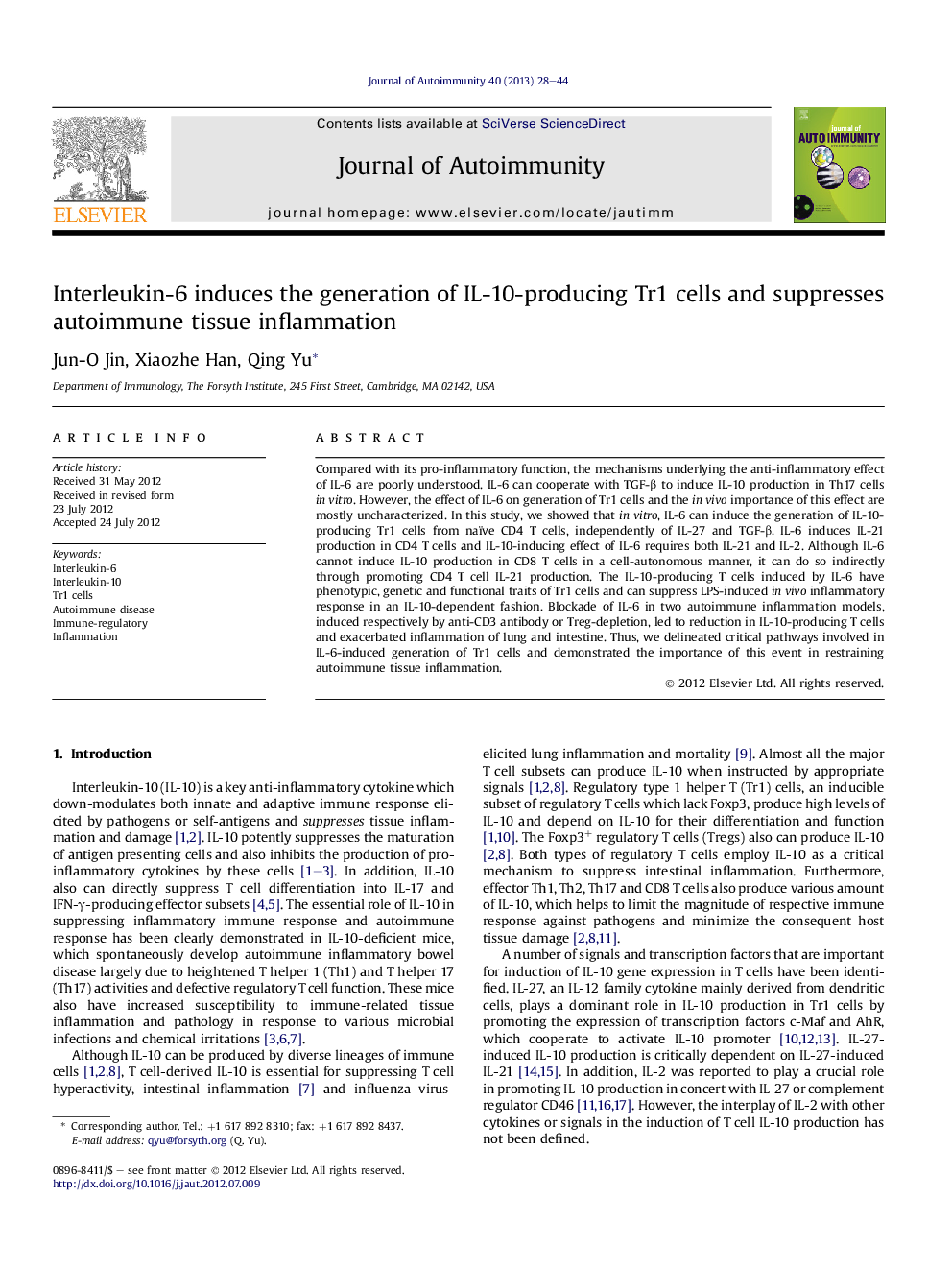| Article ID | Journal | Published Year | Pages | File Type |
|---|---|---|---|---|
| 3367861 | Journal of Autoimmunity | 2013 | 17 Pages |
Compared with its pro-inflammatory function, the mechanisms underlying the anti-inflammatory effect of IL-6 are poorly understood. IL-6 can cooperate with TGF-β to induce IL-10 production in Th17 cells in vitro. However, the effect of IL-6 on generation of Tr1 cells and the in vivo importance of this effect are mostly uncharacterized. In this study, we showed that in vitro, IL-6 can induce the generation of IL-10-producing Tr1 cells from naïve CD4 T cells, independently of IL-27 and TGF-β. IL-6 induces IL-21 production in CD4 T cells and IL-10-inducing effect of IL-6 requires both IL-21 and IL-2. Although IL-6 cannot induce IL-10 production in CD8 T cells in a cell-autonomous manner, it can do so indirectly through promoting CD4 T cell IL-21 production. The IL-10-producing T cells induced by IL-6 have phenotypic, genetic and functional traits of Tr1 cells and can suppress LPS-induced in vivo inflammatory response in an IL-10-dependent fashion. Blockade of IL-6 in two autoimmune inflammation models, induced respectively by anti-CD3 antibody or Treg-depletion, led to reduction in IL-10-producing T cells and exacerbated inflammation of lung and intestine. Thus, we delineated critical pathways involved in IL-6-induced generation of Tr1 cells and demonstrated the importance of this event in restraining autoimmune tissue inflammation.
► IL-6 can induce the generation of functional Tr1 cells from naïve CD4 T cells. ► The effect of IL-6 requires IL-21 and IL-2 but not IL-27 or TGF-β. ► IL-6-induced IL-21 cooperates with IL-2 to activate AhR and c-Maf gene expression. ► Blockade of IL-6 impairs IL-10 production in two autoimmune inflammation models. ► Blockade of IL-6 exacerbates autoimmune inflammation in multiple organs.
